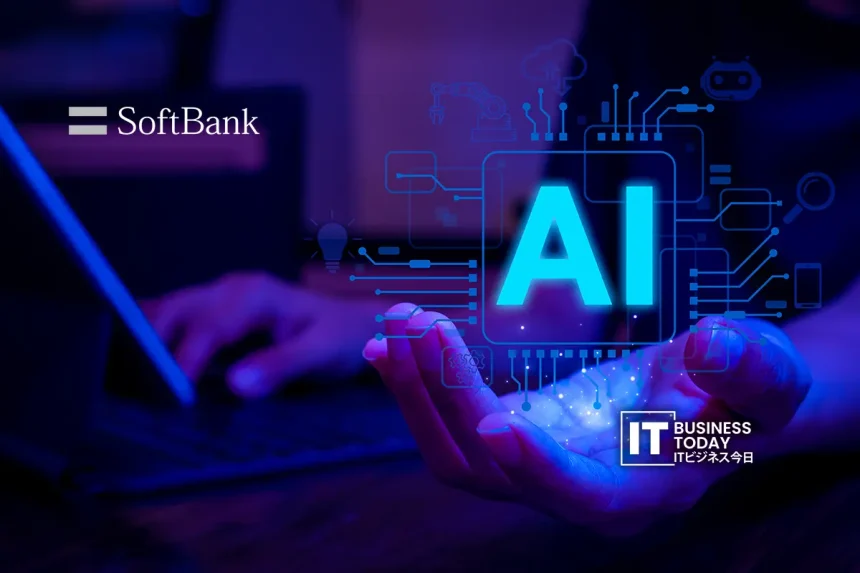A joint venture between SoftBank and OpenAI in Japan, originally expected to be established by summer 2025, has been significantly delayed. The planned entity, called SB OpenAI Japan, is intended to deliver AI services to Japanese corporate customers.
While SoftBank maintains that preparations are underway, details are scarce, and an updated status is expected in November 2025. Earlier, the CEO of SoftBank’s telecom unit, Junichi Miyakawa, had set the target launch date at the end of July. That deadline came and went without the JV being formally operational.
Background: What Was Planned
- SB OpenAI Japan was announced in February 2025 during a SoftBank-OpenAI partnership reveal. The goal: to offer AI services (including ‘Cristal intelligence’) to Japanese enterprises.
- SoftBank’s CEO Masayoshi Son and OpenAI’s Sam Altman committed to making this JV a core part of SoftBank’s AI push. It is co-owned by OpenAI and a company formed by SoftBank and its domestic telecoms business.
Also Read: OpenAI and NVIDIA partner to deploy 10GW AI infrastructure
Reasons for Delay
The sources cited by Reuters say that the venture is simply behind schedule. Key factors likely include:
- Complexities in defining product offerings and scope for enterprise customers.
- Regulatory, legal, and administrative processes in Japan for AI/tech ventures can be demanding.
- Infrastructure, staffing, and technical readiness (e.g., data compliance, localization, integration) are non-trivial in AI industry moves.
Implications for Japan’s Tech Industry
The delay of SB OpenAI Japan has several potential effects for the broader Japanese tech ecosystem:
- Slower AI Adoption in Enterprises
Japanese firms waiting on the JV for AI tools and services (especially localized, enterprise-grade models) will likely delay their own adoption or look elsewhere (international providers or domestic alternatives). The earlier the JV had launched, the quicker businesses could integrate AI-powered solutions for automation, decision-making, operations, etc. - Domestic Competitors Get Window of Opportunity
Companies already providing AI/ML services, or those with in-house AI capabilities, will have more time to strengthen their foothold. This includes Japanese startups, telecom companies, cloud providers, and systems integrators. - Talent, R&D & Infrastructure Pressure
Japan has been trying to reinvigorate its cutting-edge tech capacity. Delays may slow down investments in AI research, data infrastructure, or talent recruitment that were tied to the JV’s anticipated launch. Also, delays in infrastructure (data centers, regulatory frameworks, data privacy compliance) can raise costs or uncertainty for business planning. - Regulatory & Trust Issues Get More Attention
With delays, businesses and regulators will likely hone in on policy issues, data privacy, model robustness, AI ethics, intellectual property, and localization. Firms will want clarity around compliance, and delays might stem from or cause more discussion on how to regulate enterprise AI in Japan.
Effects on Businesses Operating in This Industry
- Businesses depending on the JV (e.g. potential clients of SB OpenAI Japan) will need to revise timelines, possibly allocate alternative vendors or develop internal capabilities. This may increase costs or slow down planned AI projects.
- Startups & service providers might gain more negotiation leverage. If the JV’s entry is delayed, other providers can fill the gap, offering customized AI, consulting, or localized services.
- SoftBank itself could face internal pressures: managing investor expectations, absorbing costs of delay, and ensuring that strategic momentum is not lost. It also must maintain credibility among Japanese corporations anticipating the JV’s benefits.
- OpenAI too may feel the effects. Its brand expansion in Asia, especially in a market as technologically advanced and competitive as Japan, is partly dependent on this JV. A delay could affect its positioning relative to other global AI players.
Broader Trends & What To Watch
- Many countries are racing to build out enterprise AI infrastructure and localization. Japan is not unique, and delays could put it behind peers in East Asia (like South Korea, China, Taiwan) in certain enterprise AI services.
- Also, the delay may point to larger, systemic challenges in deploying AI at scale in regulated environments: data laws, energy supply, infrastructure cost, human resources, standards for safety, and interpretation.
- Businesses should watch for the November 2025 update; where SoftBank expects to report progress on the JV. That timing could also align with soft of regulatory or policy moves in Japan regarding AI.







